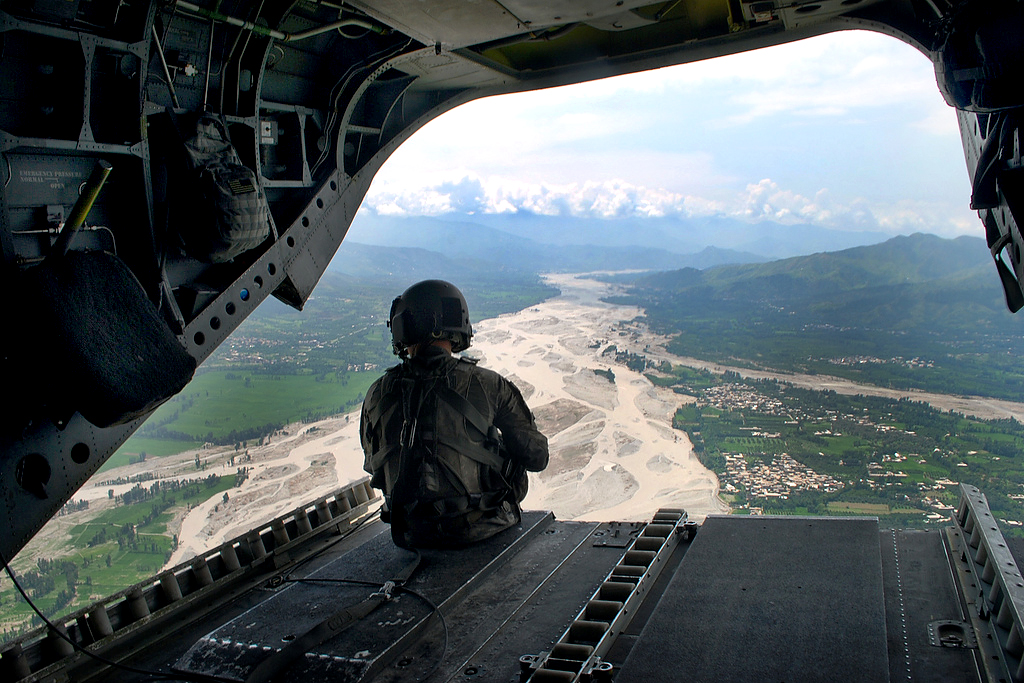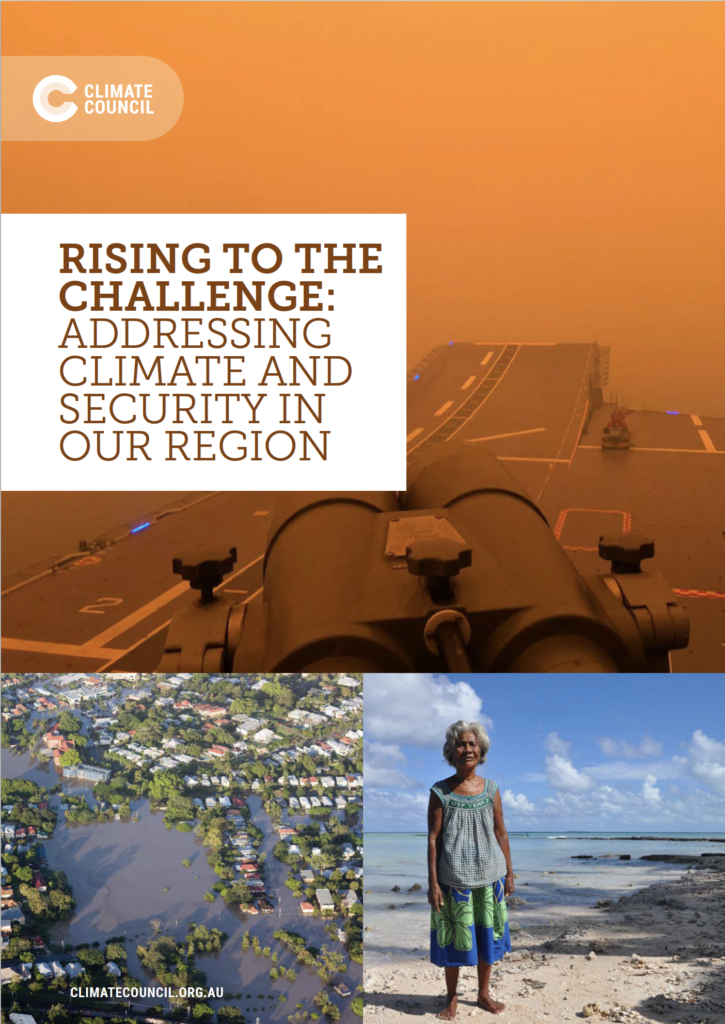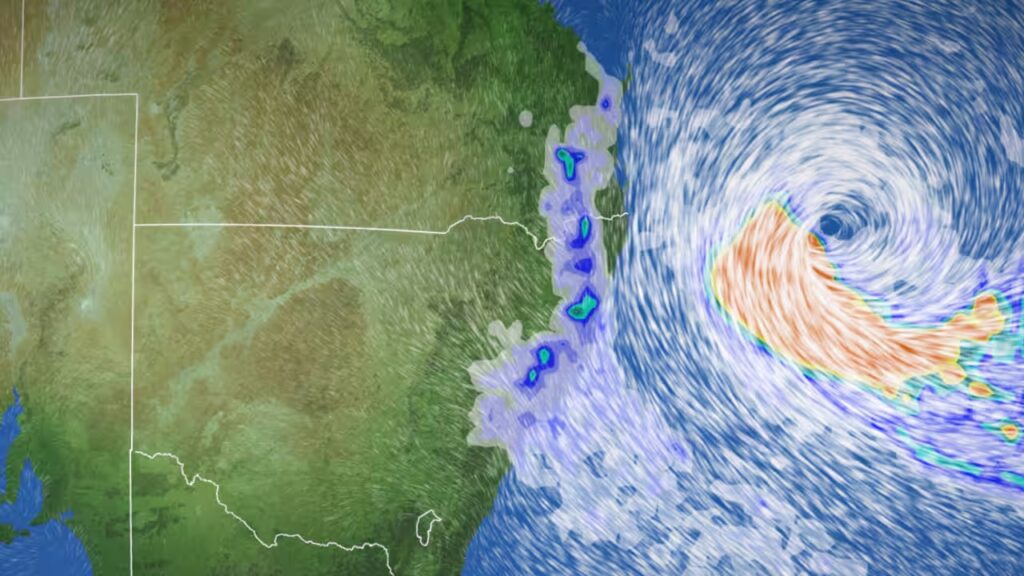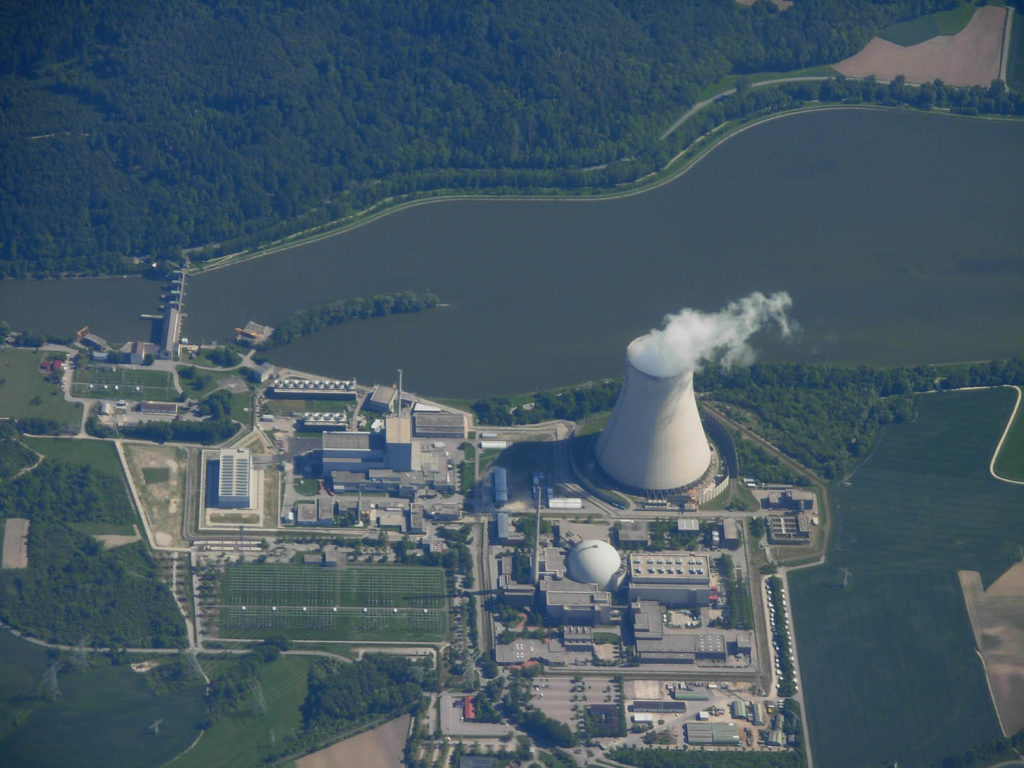Security at its most basic level is about freedom from harm or freedom from fear of harm. In the face of security risks or challenges, governments must prioritise investment to mitigate harm.
United Nations Secretary-General Antonio Guterres described climate change as an existential risk in 2018. An existential threat means that climate change threatens the very survival of humanity. Nothing is bigger or more urgent. Without far stronger action to curb greenhouse gas emissions, climate change may reach tipping points (Steffen et al. 2018). But even if we act fast enough to avoid this worst-case scenario, there is now emerging evidence that climate change amplifies other security risks – including the risk of conflict or war (IMCCS 2021).
This report outlines what the research tells us about the relationship between climate and security. It highlights significant risks within our region that could be realised in the future.
Australia must make smarter choices, based on a pragmatic assessment of climate and security risks and the range of possible interventions. Left unaddressed, these risks threaten our security as a nation.
Key Findings:
1. Climate change increases the risk of conflict and Australia will not find lasting national security without adequately addressing it.
- Australia faces substantial climate and security risks on its doorstep and without urgent action, climate change will reduce security in our region.
- Failure to rise to the challenge of climate and security is already leading to a loss of geopolitical influence for Australia, particularly in the Pacific.
- Water has long been a contested resource in Asia and climate change is worsening the situation. Any conflict over water in our region could have profound consequences for Australia.
- Pacific Island Countries as well as Bangladesh, China, Vietnam, India and Indonesia face significant threats from sea level rise, which is likely to increase displacement and forced migration.
2. The federal government’s financial support of the fossil fuel industry is actively undermining Australia’s national security.
- Australia is spending public money in ways that exacerbate climate change, including handing out billions of dollars in fossil fuel subsides.
- Australia failed to use COVID-19 to invest in a renewables-led recovery, spending less than two percent of its economic stimulus money on climate solutions. By comparison, Canada spent 74.5 percent and the UK spent more than 20 percent.
“ Today, no nation can find lasting security without addressing the climate crisis. We face all kinds of threats in our line of work, but few of them truly deserve to be called existential. The climate crisis does.”
Lloyd Austin, US Secretary of Defense, 22 April 2021
3. Australia has fallen well behind the US, UK, Japan, New Zealand and other peers in analysis of climate and security risks.
- Climate change needs to figure prominently in Australia’s security thinking and investment, but this is not yet the case.
- In 2018, a Senate Inquiry called for a national climate and security threat assessment but this has not occurred, and climate change remains on the margins of Australia’s defence, foreign affairs and trade strategies.
- Other nations and international organisations are rapidly broadening traditional notions of national security in order to address climate security risks.
4. Australia must act rapidly and decisively on climate change in order to maintain the collective security of our region.
- To address the root cause of climate-fuelled insecurity, the science is clear that Australia should reduce its emissions by 75% (below 2005 levels) by 2030 and achieve net zero by 2035. As a first step, Australia must at least match the updated commitments from our key allies, and pledge before Glasgow to at least half our emissions (below 2005 levels) by 2030.
- Australia can help accelerate decarbonisation in our region by shifting from fossil fuel exports to clean exports and making smart use of development assistance.
- As part of the 2022-23 Federal Budget papers, the federal government should publish a statement on how the budget as a whole addresses the climate security challenge.
- The Federal Government should urgently complete an Integrated Climate and Security Risk Assessment.











